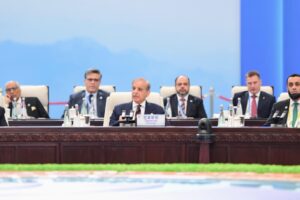ISLAMABAD: The Supreme Court on Wednesday granted bail to Pakistan Tehreek-i-Insaf (PTI) founder Imran Khan in eight cases related to the May 9 riots, questioning the prosecution on consistency in earlier rulings and the strength of evidence produced.
The hearing was conducted by a reconstituted three-judge bench, headed by Chief Justice Yahya Afridi and comprising Justices Hassan Azhar Rizvi and Shafi Siddiqui. Justice Rizvi replaced Justice Mian Gul Hassan Aurangzeb, who was earlier part of the bench. Proceedings commenced at 10:30am, following multiple adjournments.
At the outset, prosecutor Zulfiqar Naqvi informed the court that the former premier had been unable to appear a day earlier due to health reasons. Chief Justice Afridi pressed the prosecution to clarify its stance, asking whether principles of consistency had been applied in earlier bail rulings.
“You must have studied the Lahore High Court’s ruling,” the CJP remarked. “Did this court not previously grant bail in conspiracy-related cases? Should the principle of consistency not apply here?”
The prosecutor argued that Supreme Court observations in such matters were interim and not binding. However, the bench appeared unconvinced. Justice Rizvi, while questioning Naqvi on the Ejaz Chaudhry case, noted the prosecution had failed to establish whether Mr Chaudhry was even present on May 9. “You are the prosecutor, yet you don’t know the basics?” Justice Rizvi observed.
Read More: Protests erupt in Gilgit-Baltistan against manhandling of traders
When asked about the evidence against Mr Khan, the prosecutor cited three witness statements and alleged that the PTI founder had played a “central role” in the cases. Justice Siddiqui, however, noted that the apex court had previously granted bail in three similar conspiracy cases, reiterating that the prosecution must demonstrate how this matter differed.
Chief Justice Afridi underlined that the court would not allow arguments on the merits of the case, stressing that such assessments fell within the trial court’s jurisdiction. “If we comment on the merits, the trial will be prejudiced,” he cautioned.
The prosecution further argued that Mr Khan had refused to cooperate with investigators, including declining polygraphic tests, despite court permission. Justice Siddiqui questioned whether such tests had been conducted in comparable cases, to which the prosecutor cited the Noor Mukadam case as precedent.
The bench observed that the accused had remained on bail for two months after the riots, questioning whether that period had not been sufficient for police investigation. Eventually, the court granted bail in eight cases, noting that the trial court would assess the veracity of evidence.
Meanwhile, the Lahore High Court also heard Mr Khan’s bail petitions in eight May 9-related cases, including those linked to the Jinnah House attack. Filed by his counsel Barrister Salman Safdar, the petitions argue that the charges are politically motivated and part of a campaign of “revenge”. The former premier has urged expedited hearings, maintaining that delays compromise the delivery of justice.








